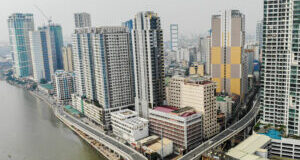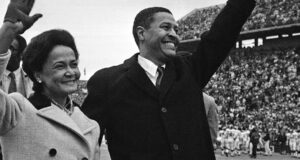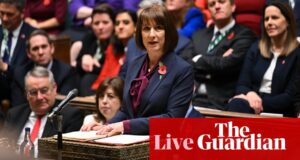
Economic Freedom in Hong Kong
The Fraser Institute’s 2024 Economic Freedom of the World (EFW) report, its most recent edition, ranks Hong Kong as the world’s freest economy in 2022. Since the first report in 1995, Hong Kong has invariably ranked first, with a rare occasional drop to second. The EFW report explains its methodology for ranking economic freedom. Its five general categories include (1) Size of Government, (2) Legal System and Property Rights, (3) Sound Money, (4) Freedom to Trade Internationally, and (5) Regulation. Each of the five categories consists of several measures, which are weighted, and then combined into one comprehensive number.
Before examining Hong Kong’s ranking, let’s review the history of the EFW rankings.
I wrote the original papers for the conceptual and measurement foundations for a Liberty Fund conference held in July 1988, published as Chapters 2 and 4 in Economic Freedom: Toward a Theory of Measurement, (Fraser Institute,1991). The Fraser Institute EFW annual report, now prepared in conjunction with the Cato Institute and a global network of institutions, is the bible of economic freedom rankings.
Now let’s turn to Hong Kong.
Hong Kong was founded as a free port British Crown Colony in 1841 until its transfer of sovereignty to China on July 1,1997, and today is a Special Administrative Region (SAR) of China.
The expiration of the British lease on Hong Kong’s New Territories, with the implication that Hong Kong would revert to China in 1997, required a new set of governing laws to replace the Letters Patent and Royal Instructions that had served as Hong Kong’s colonial constitution.
Shortly after the Sino–British Joint Declaration was signed in 1984, the National People’s Congress set up the Basic Law Drafting Committee (BLDC) in 1985, whose task was to draft a new constitution, a Basic Law, for Hong Kong’s governance beginning July 1, 1997, as stipulated in the Joint Declaration.
In June 1985, the Standing Committee of the National People’s Congress (NPCSC) approved the membership of the BLDC, which consisted of 36 members from China and 23 members from Hong Kong, chaired by Chinese diplomat Ji Pengfei. Twelve of the 23 members from Hong Kong were connected to the city’s business and industrial sectors.
In addition, a Basic Law Consultative Committee (BLCC) consisting of Hong Kong community leaders was established to collect views in Hong Kong on the draft law. The BLCC was also dominated by business and professional elites.
Under the “one country, two systems” arrangement for the incorporation of Hong Kong into China, the socialist system and policies of China are not be practiced in Hong Kong, and the capitalist system and way of life before the handover are to remain for 50 years, until 2047.
The first draft of the Basic Law was published in April 1988, followed by a five-month public consultation. The second draft was published in February 1989, with another consultation period ending in October 1989. The Basic Law was promulgated on April 4, 1990, by the National People’s Congress.
Chapter V of the Basic Law provides the basis for the Fraser Institute ranking Hong Kong the freest economy in the world. It is the best free market set of rules, an economic constitution as it were, adopted anywhere in the world. It largely remains intact 27 years after 1997. Articles 105-116 specify the legal and institutional rules for Hong Kong’s free market economy. It is worth reviewing the details of Hong Kong’s free market constitution.
- Article 105. The Hong Kong Special Administrative Region shall, in accordance with law, protect the right of individuals and legal persons to the acquisition, use, disposal and inheritance of property and their right to compensation for lawful deprivation of their property. Such compensation shall correspond to the real value of the property concerned at the time and shall be freely convertible and paid without undue delay.
- Article 106. The Hong Kong Special Administrative Region shall have independent finances. The Hong Kong Special Administrative Region shall use its financial revenues exclusively for its own purposes, and they shall not be handed over to the Central People’s Government. The Central People’s Government shall not levy taxes in the Hong Kong Special Administrative Region.
- Article 107. The Hong Kong Special Administrative Region shall follow the principle of keeping the expenditure within the limits of revenues in drawing up its budget, and strive to achieve a fiscal balance, avoid deficits and keep the budget commensurate with the growth rate of its gross domestic product.
- Article 108. The Hong Kong Special Administrative Region shall practice an independent taxation system. The Hong Kong Special Administrative Region shall, taking the low tax policy previously pursued in Hong Kong as reference, enact laws on its own concerning types of taxes, tax rates, tax reductions, allowances and exemptions, and other matters of taxation.
- Article 109. The Government of the Hong Kong Special Administrative Region shall provide an appropriate economic and legal environment for the maintenance of the status of Hong Kong as an international financial center.
- Article 110. The Government of the Hong Kong Special Administrative Region shall, on its own, formulate monetary and financial policies, safeguard the free operation of financial business and financial markets, and regulate and supervise them in accordance with law.
- Article 111. The Hong Kong dollar, as the legal tender in the Hong Kong Special Administrative Region, shall continue to circulate. The authority to issue Hong Kong currency shall be vested in the Government of the Hong Kong Special Administrative Region. The issue of Hong Kong currency must be backed by a 100 per cent external reserve fund.
- Article 112. No foreign exchange control policies shall be applied in the Hong Kong Special Administrative Region. The Hong Kong dollar shall be freely convertible. Markets for foreign exchange, gold, securities, futures and the like shall continue. The Government of the Hong Kong Special Administrative Region shall safeguard the free flow of capital within, into and out of the Region.
- Article 113. The Exchange Fund (eternal reserves that provide 100% backing of the Hong Kong dollar) of the Hong Kong Special Administrative Region shall be managed and controlled by the government of the Region, primarily for regulating the exchange value of the Hong Kong dollar.
- Article 114. The Hong Kong Special Administrative Region shall maintain the status of a free port and shall not impose any tariff unless otherwise prescribed by law.
- Article 115. The Hong Kong Special Administrative Region shall pursue the policy of free trade and safeguard the free movement of goods, intangible assets and capital.
- Article 116. The Hong Kong Special Administrative Region shall be a separate customs territory.
As a specialist on Hong Kong’s economy, I was invited to participate in the deliberations of the Basic Law Consultative Committee (BLCC) focused on the economy. I prepared a paper entitled “Economic Liberties and the Basic Law” for a Symposium organized by the BLCC held in Hong Kong on September 18-20, 1989, a month before the end of the second consultative period. The paper was translated into Chinese. I emphasized the importance of retaining the free-market principles practiced under British administration.
In two books I coauthored with Bruce Bueno de Mesquita and David Newman, Forecasting Political Events: The Future of Hong Kong (1985) and Red Flag Over Hong Kong (1996), we used Bueno de Mesquita’s highly accurate political forecasting model to explore this and other questions. The results indicated a relatively quick move away from Hong Kong’s “high degree of autonomy” for personal freedom stipulated in the Joint Declaration and Basic Law.
In contrast, slightly over halfway to 2047, the Hong Kong SAR Government has kept to the principles, institution, and policies of Hong Kong as a free-market economy embodied in Chapter 5 of the Basic Law, exactly as forecast in Red Flag Over Hong Kong (pp. 114-117).
Will those principles remain intact as 2047 draws closer?
That’s anyone’s guess. Maybe current leader Xi Jinping will accelerate the economic union of Hong Kong and China by imposing China’s economic institutions and policies before he leaves the scene. Maybe China will liberalize its economy to better resemble Hong Kong. Maybe a financial scare, with investors and locals moving their money out of Hong Kong well before 2047 will force China to declare its firm support for “one country, two systems.” If, how, and when this happens will increasingly occupy the international business community with major operations in Hong Kong, and whether local residents sit tight or pack their bags as many did before the 1997 handover from Britain to China.
Hong Kong Is Falling Fast in Personal Freedom
“Economic freedom remains in the top spot, but personal freedoms have sharply fallen in recent years.”
Several years ago, the Fraser Institute, in conjunction with the Cato Institute, added personal freedom variables to its measure of economic freedom to produce a more comprehensive Human Freedom Index. The 2023 report lists 41 personal freedom and 45 economic freedom variables that go into the HFI. On this broader measure, Hong Kong fell to 46th place, down seventeen places from its 2020-2021 rank. Its fall reflects a decline in measures of personal freedom. Economic freedom remains in the top spot, but personal freedoms have sharply fallen in recent years. The decline in personal freedoms is consisted with the forecasts that appear in our two previously cited books.
Freedom House also reports a decline in Hong Kong’s civil liberties and political freedoms. In its 2024 report, Hong Kong shows the seventh largest decline in the world over the past ten years, minus 26 points in its aggregate score of freedom (page 7). No amount of Hong Kong government spin will improve its score as the territory is increasingly brought under the control of China’s communist leadership.
In the future, Hong Kong’s civil liberties and political freedom, guaranteed in the Basic Law but disregarded in practice, will disappear as the territory becomes just another Chinese city, governed under the rules and policies of mainland Communist China. The number of Hong Kong residents with memories of British Hong Kong diminishes every year. Those currently under 27 years of age, born after the handover, have no experience living under British administration. Those aged 28-45 include students up through secondary school graduation, who were adolescents under British administration. Many harsh critics of Hong Kong’s current SAR Government have left the country. Others have been arrested, prosecuted, and imprisoned. Few dare speak of the freedoms they enjoyed under British rule.
In a report dated March 29, 2024, The U.S. State Department cited measures taken by the Hong Kong Government that have eroded freedom in Hong Kong:
- During the covered period, Hong Kong authorities, under the supervision of the PRC central government, used the central government-imposed 2020 National Security Law (NSL) to further erode the rule of law in Hong Kong and the human rights and fundamental freedoms of people in Hong Kong, as well as to harass and intimidate individuals outside of its borders. In July and December, the Hong Kong Police Force issued bounties on overseas democracy advocates, attempting to enforce the NSL outside of Hong Kong’s borders. Within the special administrative region, authorities undermined the rights of defendants in cases designated as involving national security.
- Hong Kong authorities arrested and prosecuted people for peaceful political expression critical of the local and central governments, including for posting and forwarding social media posts. Hong Kong and PRC authorities continued to target civil society groups, activists, media companies and journalists, political parties, labor unions, academics, student groups, and other people and organizations that the government accused of being connected to Hong Kong’s pro-democracy movement or otherwise critical of the local or central government. Hong Kong authorities undermined media freedom by continuing the prosecutions of journalists and restricting access to information.
- PRC authorities denied people in Hong Kong a meaningful role in the city’s governance, administering new rules that significantly limited the number of directly elected District Councilors and introducing a new nominating process that effectively barred independent and non-establishment candidates from running for office.
China’s Communist rulers have shown that words and guarantees of civil liberties and political freedoms have no meaning when it comes to Hong Kong. Allowing Hong Kong to keep its economic freedoms, for the time being, may be more a pragmatic economic decision than a hard rock statement of principle.
I’ve seen both sides of the Sweet and Sour of Hong Kong, sweet in economic freedom, sour in personal liberty. I first went to Hong Kong to study Chinese in 1963. Over the years I wrote two books and co-authored two others, along with a myriad of pamphlets, articles, and media interviews.
I have witnessed the best of time under British administration and am now watching a downward spiral to the worst of times for Hong Kong.




